Indigenous Governance Database
landback
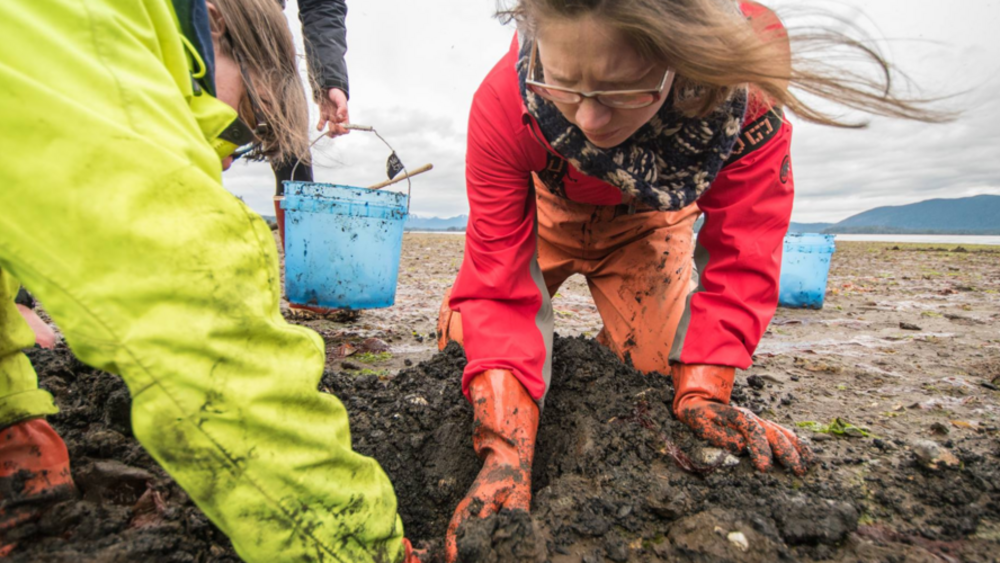
Experts, not Obstacles: Indigenous Conservation Excellence and the Trap of Conservation at any Cost
The twin crises of biodiversity loss and climate change demand action. The question is how best to address these challenges. Driven by a sense of urgency, some call for conservation at any cost, a continuation of the forced separation of Indigenous people from their ancestral lands, waters, and…
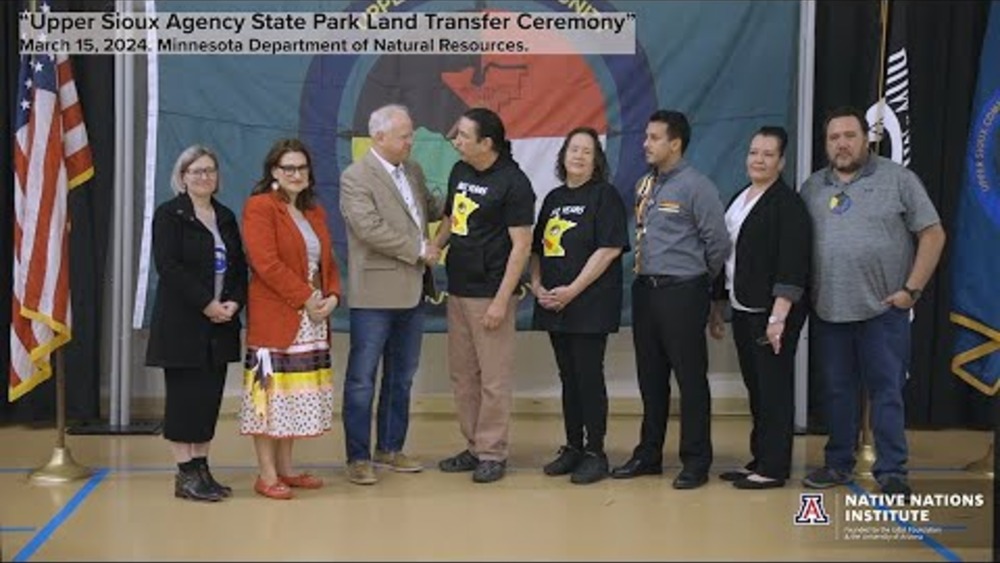
Landback: The Return of Upper Sioux Agency State Park to the Upper Sioux Community
After decades of campaigning by Upper Sioux Indian Community Chairman Kevin Jensvold, the State of Minnesota finally returned the land formerly known as Upper Sioux Agency State Park to its rightful Dakota stewards in March 2024. Minnesota Department of Natural Resources Director of Tribal…
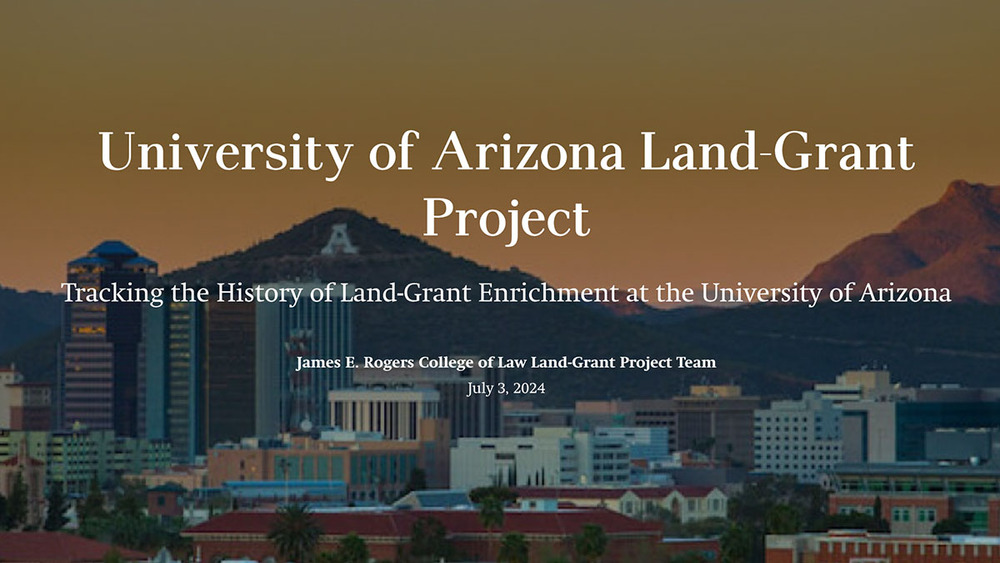
University of Arizona Land Grant Project
Tracking the History of Land-Grant Enrichment at the University of ArizonaAn interactive story map built by the James E. Rogers College of Law Land-Grant Project Team, the goal of the University of Arizona Land-Grant Project is two-fold:(1) to research, share, and begin to understand how the…
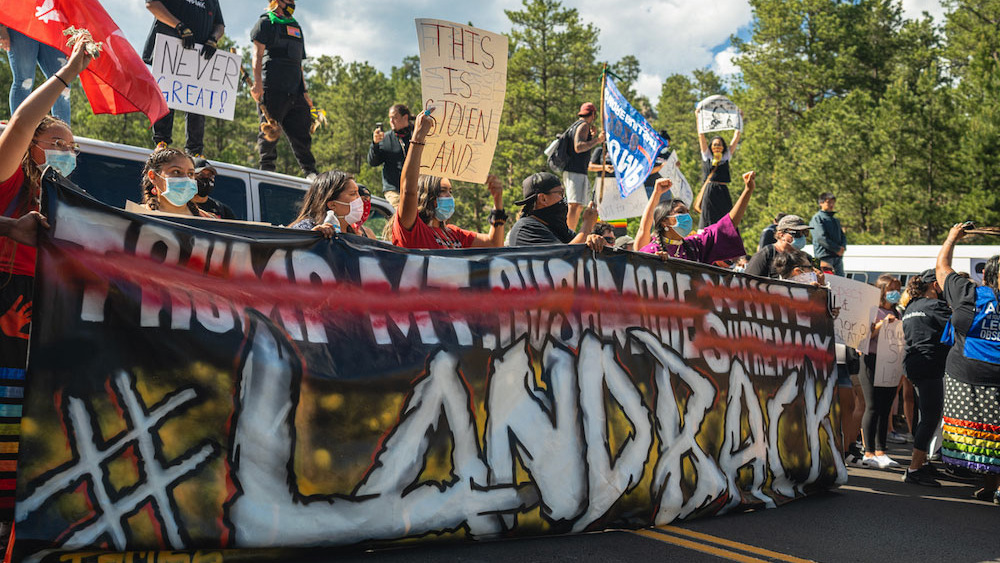
ʻAʻole Pau Ka ʻIke I Ka Hālau Hoʻokahi (Knowledge Is Not Restricted To One School Of Thought): Reflecting on the Significance of Indigenous Knowledge in Geography
Geography is a discipline that has traditionally been focused on the study of place and space, but understanding and interpreting its concepts has been shaped by a dominating Eurocentric influence. Indigenous knowledge (IK) and perspectives have historically been marginalized or excluded altogether…
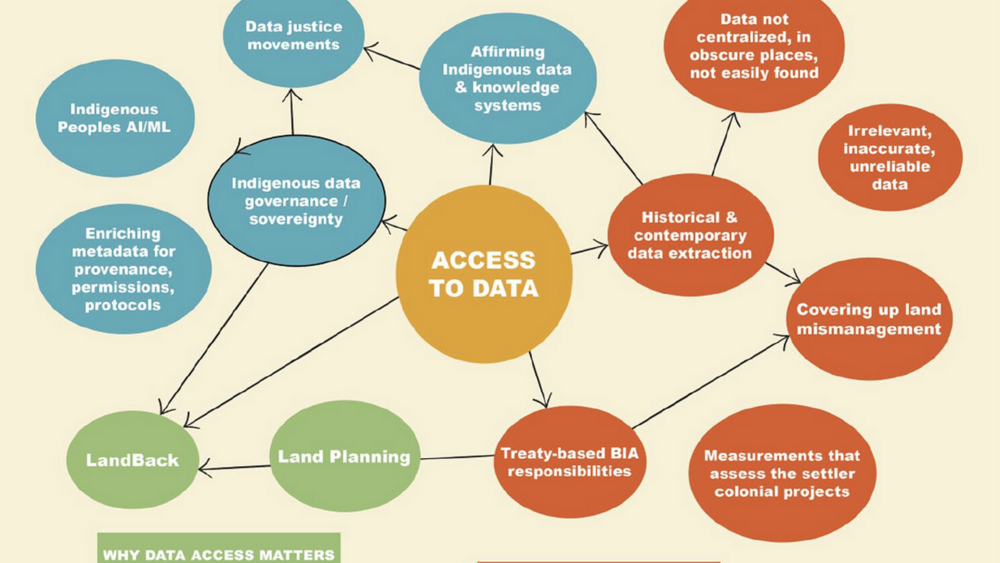
Life and times of data access: Regarding Native Lands
It is challenging to understand the full and detailed story of Native People’s lands in the United States. In this article, we contend that reliable and accessible data regarding Native People’s lands complicate and perpetuate those challenges. Stemming from the implications of colonial ideologies…
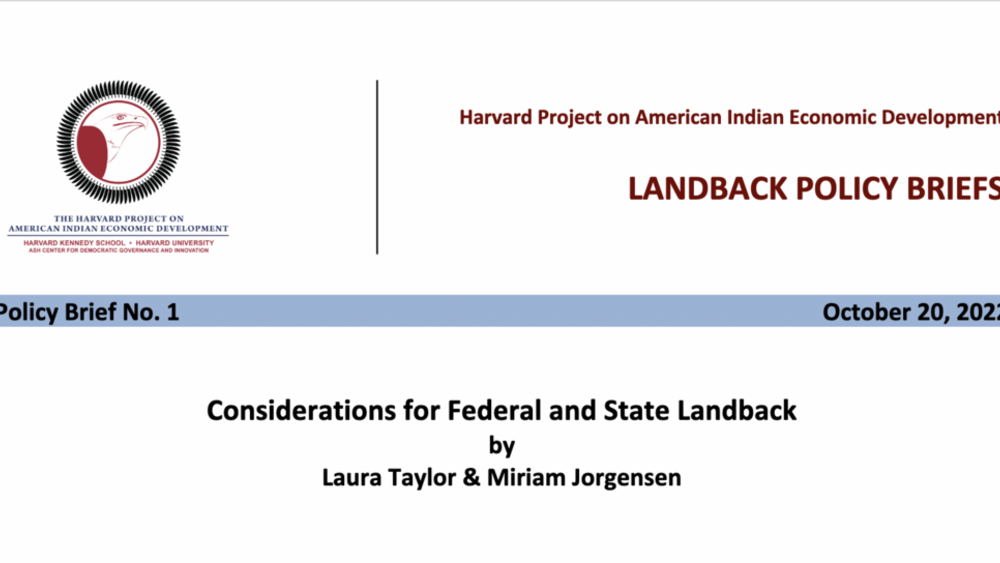
Considerations for Federal and State Landback
This policy brief showcases how geographic information system (GIS) techniques can be used to identify public and/or protected land in relation to current and historic reservation boundaries, and presents maps showcasing the scope of landback opportunities. These lands include federal- or state-…
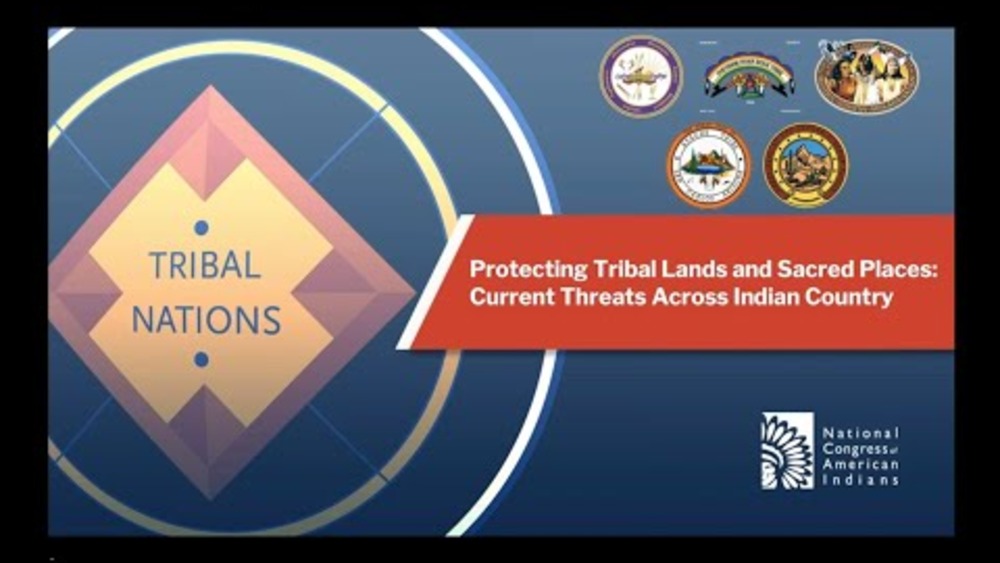
NCAI Forum: Protecting Tribal Lands and Sacred Places: Current Threats Across Indian Country
The latest in NCAI’s ongoing series of virtual events featuring tribal leaders, this forum shares the stories of five tribal nations working to protect their tribal homelands in the face of baseless attacks by the federal government, and discussed how the federal government must recommit to its…
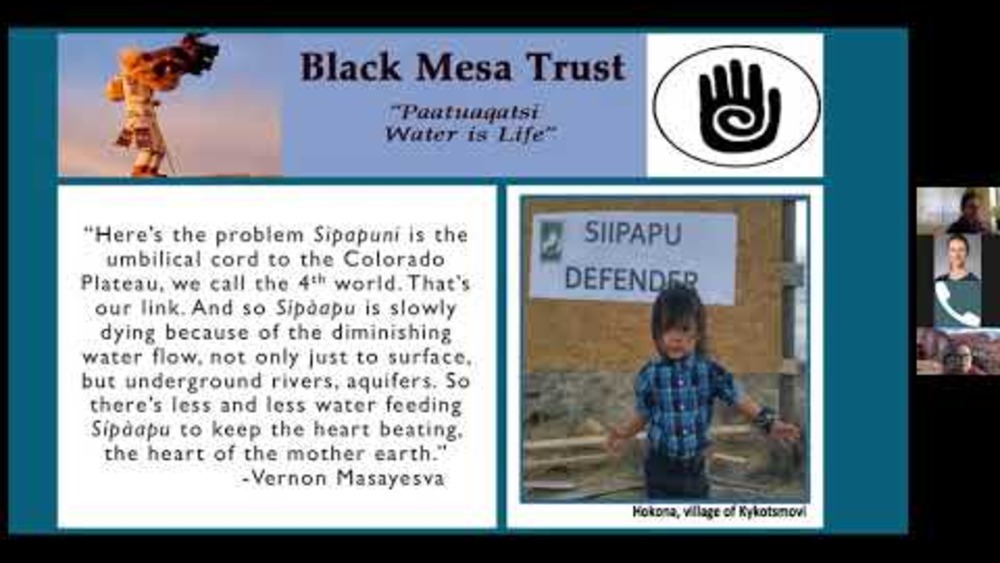
Water in the Native World Webinar Series: A Confluence of Anticolonial Pathways for Indigenous Sacred Site Protection
“Water in the Native World,” a special issue on tribal water research was just released by the Journal of Contemporary Water Research and Education. This is the second time, Dr. Karletta Chief, the PI of the Community Engagement Core of the University of Arizona Superfund Research Center (UA SRC)…
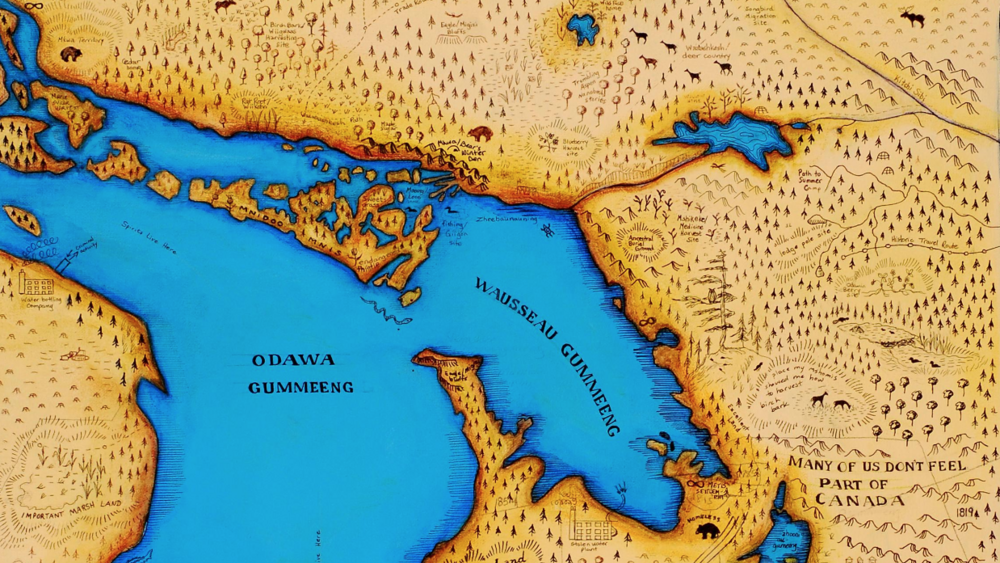
The Rise of the First Nations Land Management Regime in Canada: A Critical Analysis
Federal Budget 2018 contains significant investments in the First Nations Land Management regime, including $143.5 million over five years beginning in 2018-19, and $19 million per year ongoing. In December 2018, the First Nations Land Management Act was amended, lowering the voting threshold for…
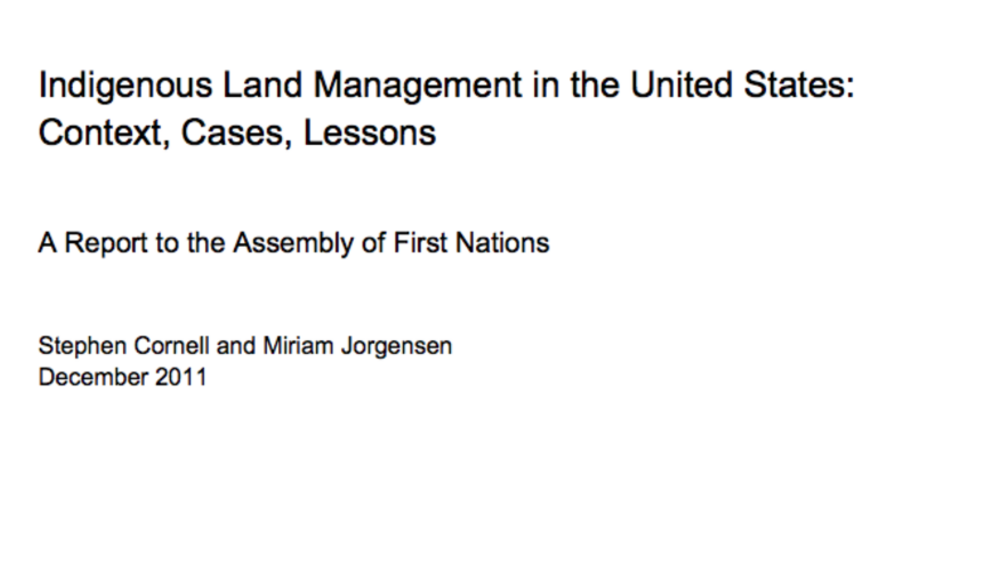
Indigenous Land Management in the United States: Context, Cases, Lessons
The Assembly of First Nations (AFN) is seeking ways to support First Nations’ economic development. Among its concerns are the status and management of First Nations’ lands. The Indian Act, bureaucratic processes, the capacities of First Nations themselves, and other factors currently limit the…
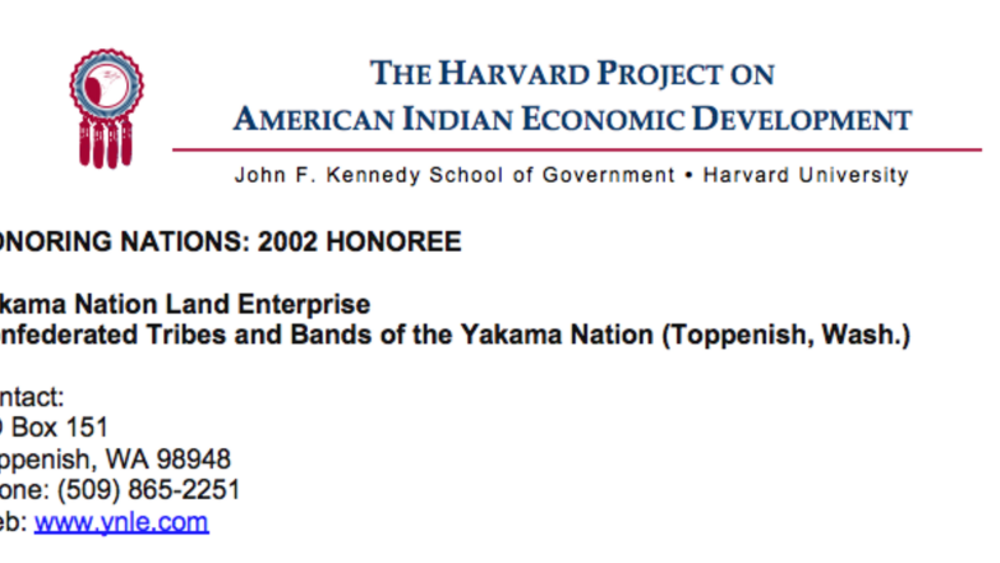
Yakama Nation Land Enterprise
In an effort to consolidate, regulate, and control Indian land holdings, the financially self-sustaining Yakama Nation Land Enterprise has successfully acquired more than 90% of all the fee lands within the Nation’s closed area — lands which were previously highly "checker-boarded." The Enterprise’…
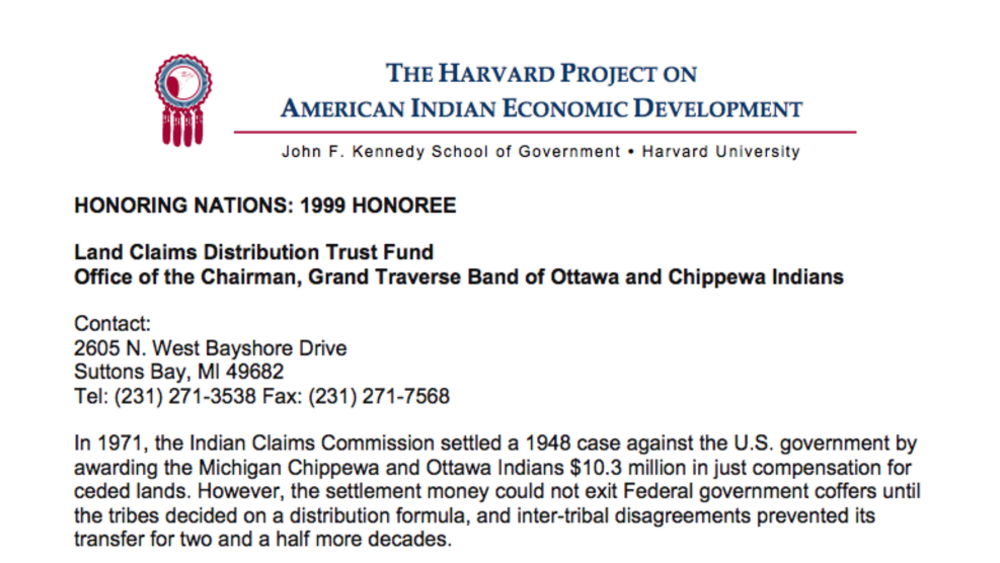
Grand Traverse Band's Land Claims Distribution Trust Fund
After 26 years of negotiation with the US government over how monies from a land claims settlement would be distributed, the Band assumed financial control over the settlement by creating a Trust Fund system that provides annual payments in perpetuity to Band elders for supplementing their social…
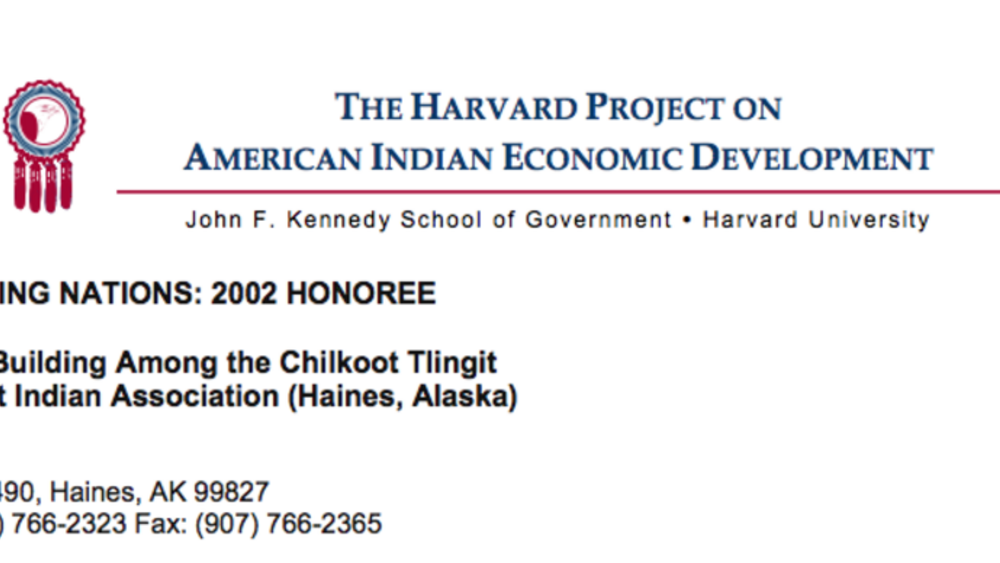
Chilkoot Tlingit "Nation Building"
Excluded by the Alaska Native Claims Settlement Act, the Chilkoot Tlingit are engaged in a process of nation-building. The process began in 1990 with the revival of their dormant tribal government, the Chilkoot Indian Association (CIA). From this institutional foundation, the 480-member CIA…
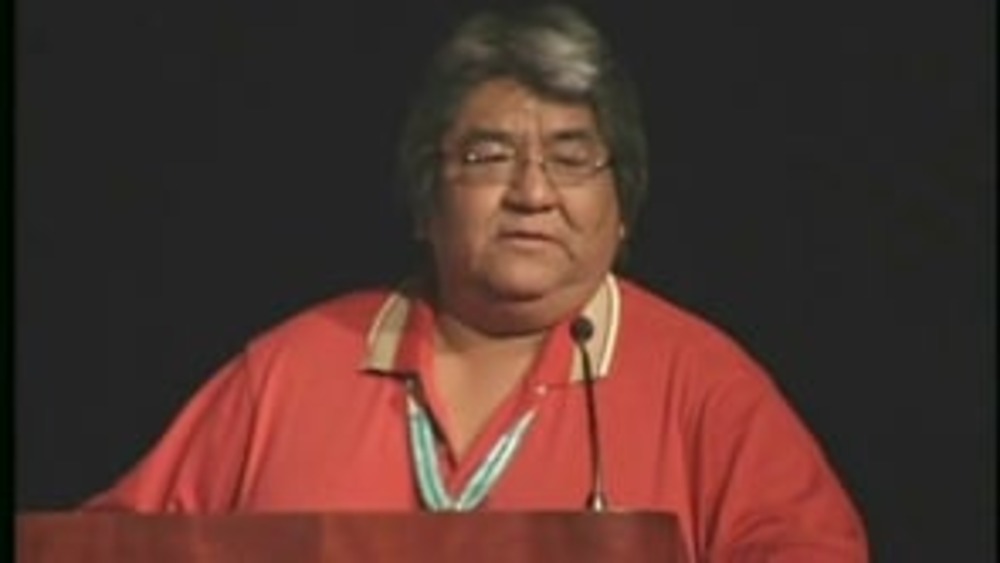
Honoring Nations: Cedric Kuwaninvaya: The Hopi Land Team
Former Chairman of the Hopi Land Team Cedric Kuwaninvaya presents an overview of the tribal subcommittee's work to the Honoring Nations Board of Governors in conjunction with the 2005 Honoring Nations Awards.
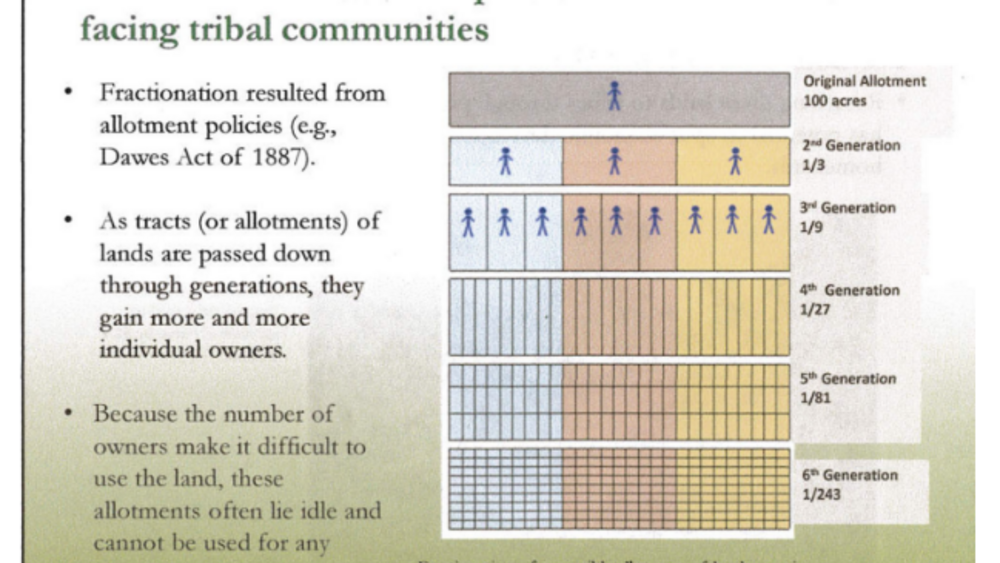
Osage Nation to receive $7.4 million in Cobell Land Buy-Back program
The Land Buy-Back Program for Tribal Nations has come to the Osage and the federal government is proposing $7.4 million to buy back fractionated land interest from individual tribal members. According to tribal development and land acquisition director Bruce Cass, who is working with Osage attorney…
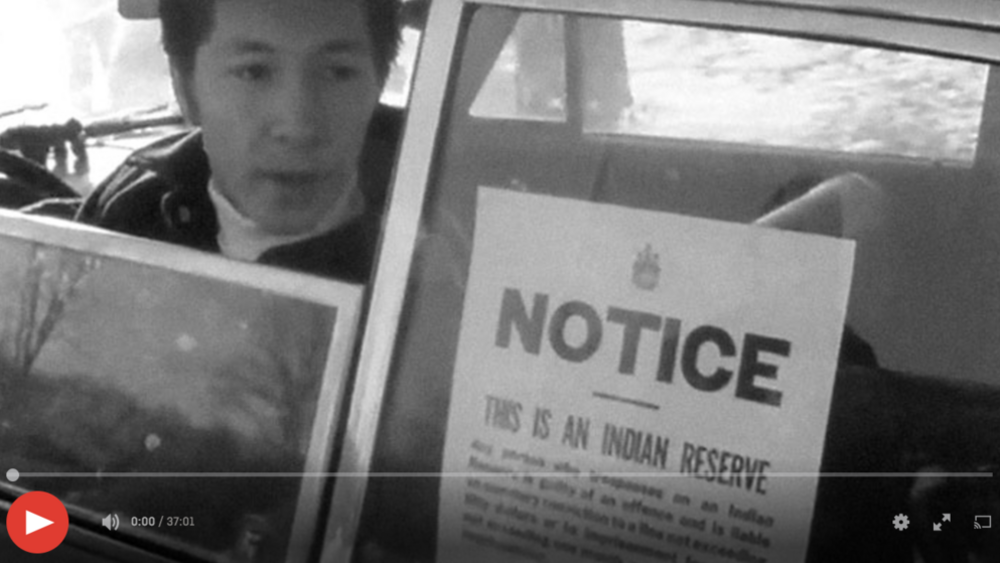
You Are on Indian Land
This film shows the confrontation between police and a 1969 demonstration by Mohawks of the St. Regis Reserve on the bridge between Canada and the United States near Cornwall, Ontario. By blocking traffic on the bridge, which is on the Reserve, the Indians drew public attention to their grievance…
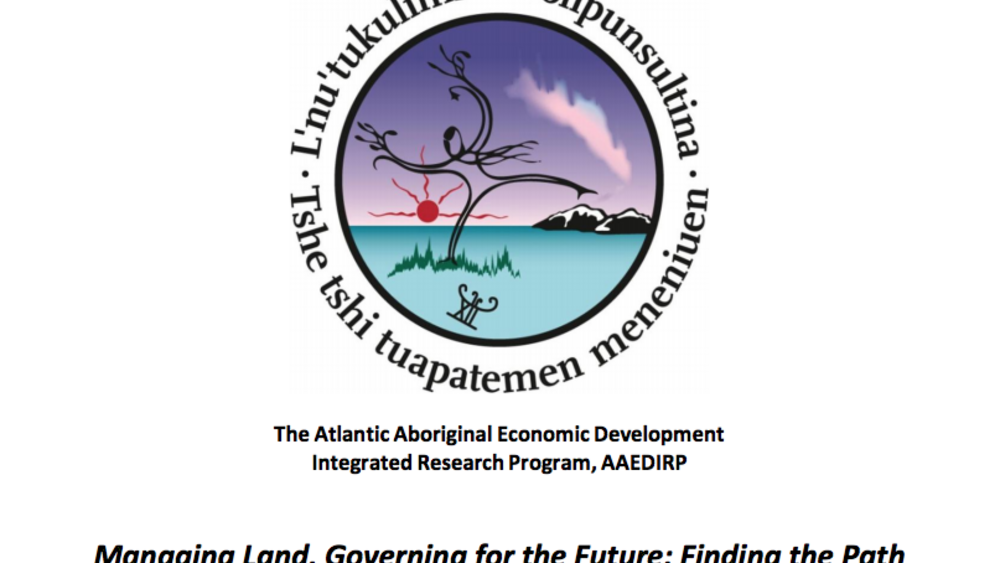
Managing Land, Governing for the Future: Finding the Path Forward for Membertou
This in-depth, interview-based study was commissioned by Membertou Chief and Council and the Membertou Governance Committee, and funded by the Atlantic Aboriginal Economic Development Integrated Research Program to investigate methods by which Membertou First Nation can further increase its…
